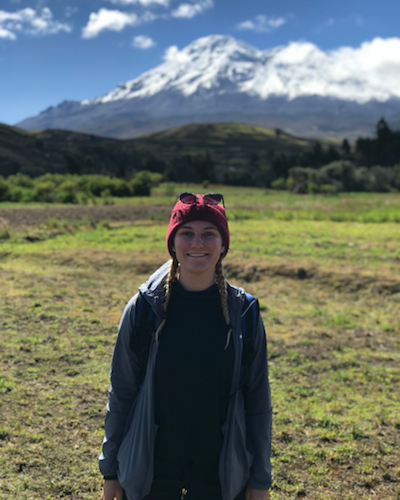HBA Sustainability Certificate
Empowering the next generation of sustainable leaders
I’m Julia, and I’m the incoming VP University Affairs for 2019/2020. My pre-Ivey degree was with the School For Advanced Studies in the Arts and Humanities with an Honours Specialization in English Language and Literature. My degree focused on collaboration, global-mindedness, creativity, and forward thinking. Now that I’m in Ivey, I am very interested in exploring business and all its possibilities through these lenses, as well as others. I am passionate about social enterprise, inclusion, and narrative knowledge. My goals in life are to leave people feeling better after having spoken to me and to never stop asking questions!
What is your personal definition of sustainability?
A sustainable business 1) has a dependable revenue stream that supports core functions, 2) has a positive (or non-negative) community/environmental impact, and 3) is self-aware of its impact and is constantly innovating to reach net-positive. I firmly believe that businesses that thrive on negative impact will inevitably fail. Whether it be an oil company destroying our planet or a beauty company thriving off of insecurity, inevitably the people will realize the negative impact and turn away. Therefore, the only true sustainable business is one that reaches targets without having a negative impact on society.
What role do you see sustainability playing in your professional career?
I am very interested in social enterprise. I believe that there doesn’t need to be a tradeoff between doing well for yourself and doing good for your community. The for-profit business space has a massive capacity for impact due to their sustainable revenue stream and, often, size and reach. However, what is often overlooked is the massive benefit that incorporating a social issue into the core of a company’s business model can have on the company’s profitability. Gillette, after their recent commercial, saw a spike in the amount of people who trust their brand, as well as a sales boost. Connecting with issues that matter to people and doing genuine good can boost your brand in the eyes of the public, which leads to more brand equity and profit over time. In addition to this, I find the goal of working with a non-profit or for-profit business to help them “work to the middle” (non-profit finding a revenue stream, for-profit making more impact) adds an extra level of challenge to the role of a consultant. For this reason, I hope to work in social impact marketing or consulting after graduation.
What sustainability projects have you been engaged in?
This July, I went on a Me To We women’s empowerment trip to Ecuador. I met with many different women's groups in order to learn how their programs function in their communities. I volunteered on water project and school build sites in both Chimborazo and the Kanambu community in the Amazon. I participated in two water walks, worked on a farm in Chimborazo, and learned more about sustainable agriculture and ethical farming practices. I was able to meet and work with many locals who taught us both about their beautiful culture and about the importance of the environment around us. It was also an opportunity to further study the persevering impact of colonialism, learn about how environmental deterioration is cultural deterioration, and gain a more intersectional understanding of what it means to be a woman in the world.
I work as an Innovation Works DECA. In the past, I facilitated Socialpreneur chats: conversations where social entrepreneurs work together to create sustainable business models. I also created the impact measurement system used to determine the impact of the chats for Pillar’s annual report. Currently, I interview a local social entrepreneur each week and write about them for the Innovation Works blog!
Julia Campbell
